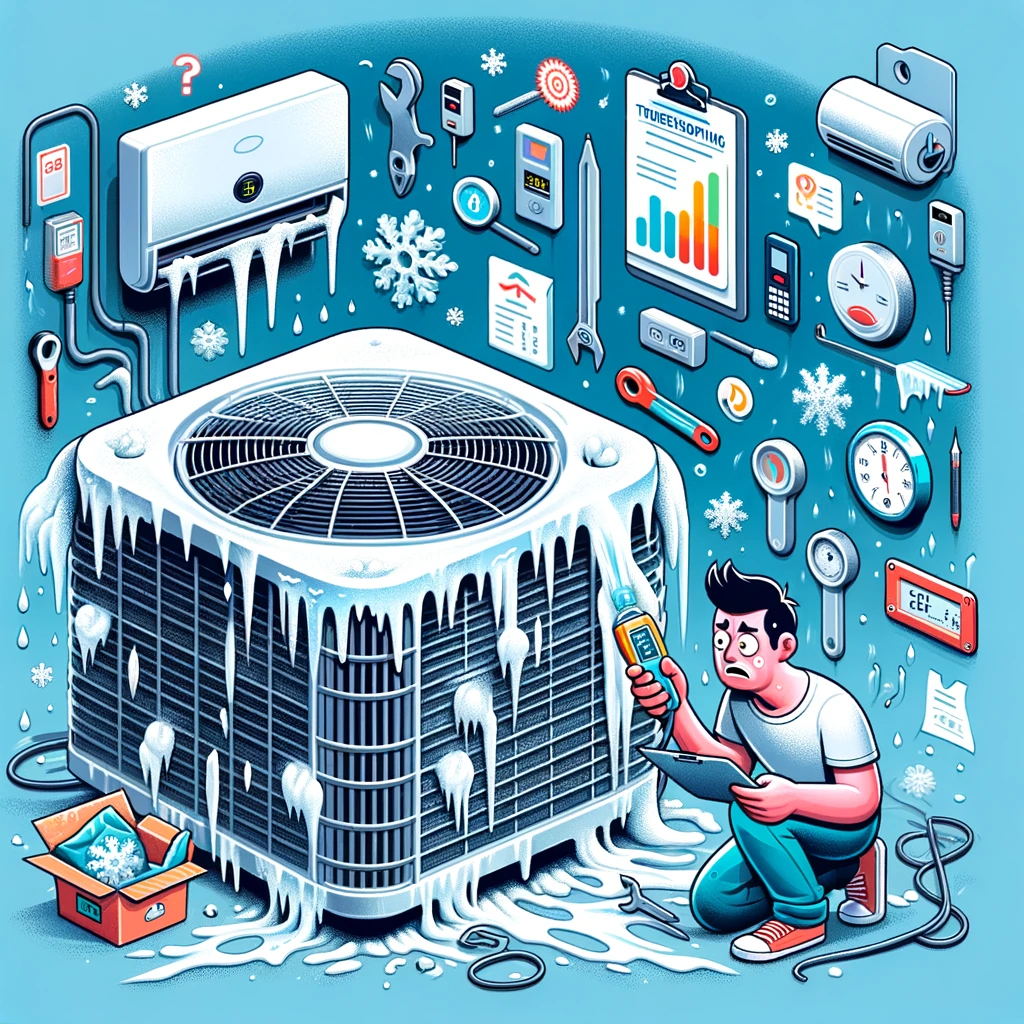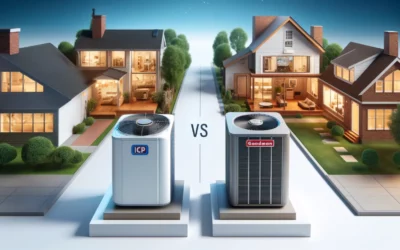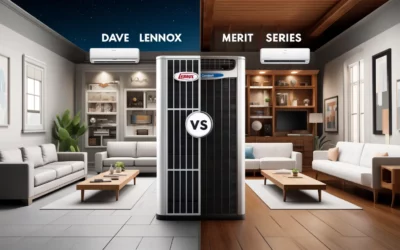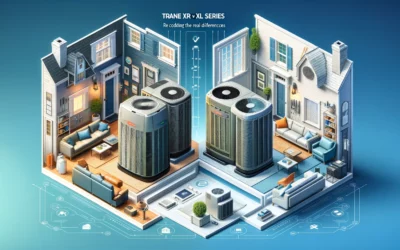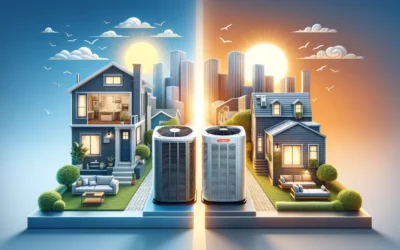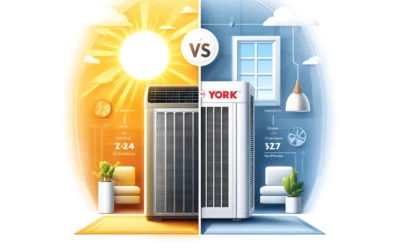Welcome to this detailed guide about one of the most frequent problems that home air conditioners might experience – not cooling effectively. Whether you’re a homeowner dealing with this tiresome issue or someone curious about common air conditioning issues, this post can certainly help you. Not only will we explore the reason behind this problem, but we’ll provide a fact-based expert opinion on potential solutions. Thus, empowering you to either take corrective actions or engage a professional with useful insight. By the end of this educational read, you’ll be informed about what might go wrong with your air conditioner and what you can do about it. So, dive right in and discover how to keep your home cool and comfortable all year round.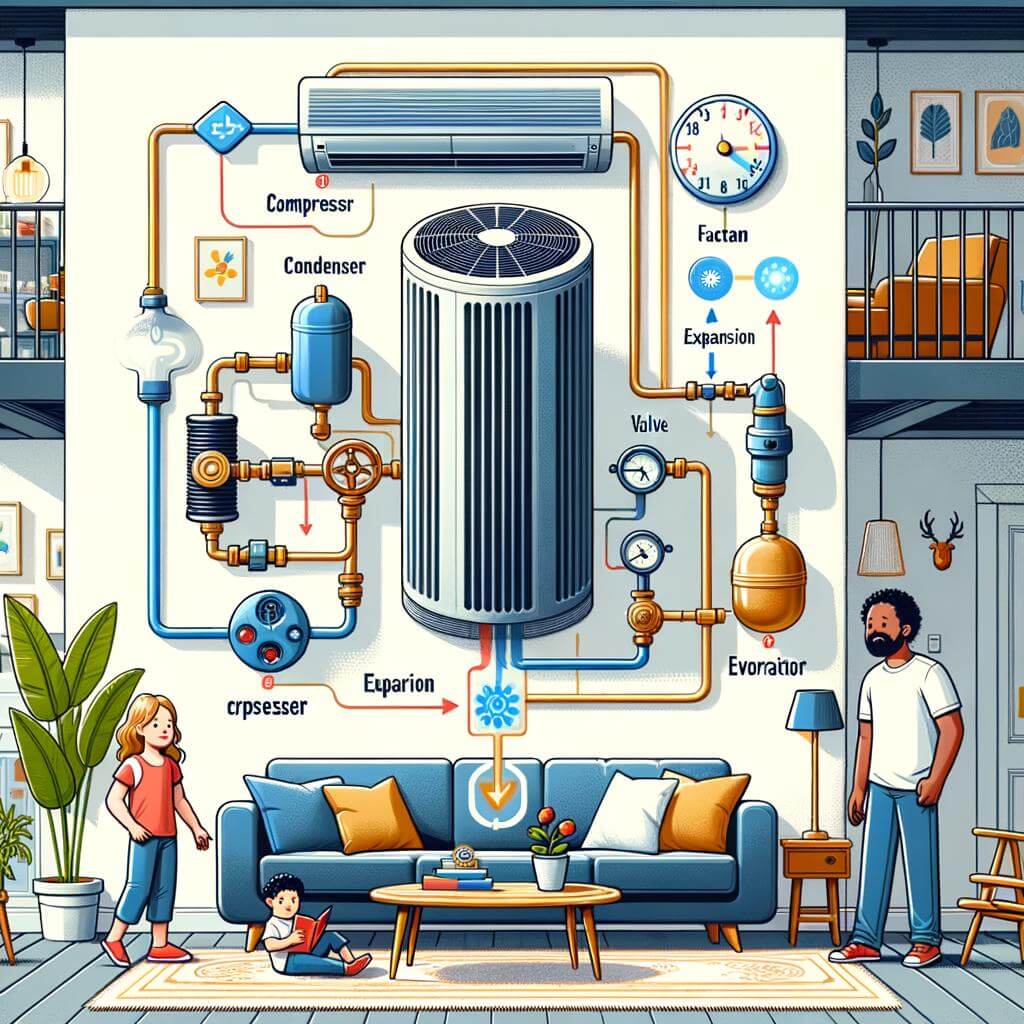
Understanding the Basics of Home Air Conditioning Systems
Air conditioning units are not only handy but also crucial for our comfort during the sweltering summer months. Yet, sometimes, they can put us to a test with their hitches and glitches. One common snag most homeowners bump into is their AC not delivering enough cooling as expected. Although this might sound quite simple, the underlying reasons could be a bit intricate and numerous.
First and foremost, inadequate refrigerant level might be the culprit. If there is not enough refrigerant, the system can’t absorb as much heat, leaving your home warmer than you’d like. Along the similar lines, dirty filters and coils could also cause the inefficiency of your AC. If they are dirty, they would not efficiently carry out the heat exchange process, resulting in less cooling output. Other potential culprits might include a malfunctioning thermostat or a motor that’s on the fritz. In some cases, the air conditioner might be too small for the space you’re trying to cool.
| Potential Problem | Suggested Solution |
| Insufficient refrigerants | Recharge refrigerants |
| Dirty filters and coils | Clean or replace them regularly |
| Malfunctioning thermostat | Adjust or replace the thermostat |
| Defective motor | Repair or replace the motor |
| Air conditioner too small | Upgrade to a bigger size |
To maintain your home comfort during the peak summer months, take proactive measures, and ensure your AC is working optimally. Keep the filters clean, coils tidy, and refrigerant level up to standard. And most importantly, conduct a regular check-up, so any potential problem can be detected and rectified early on.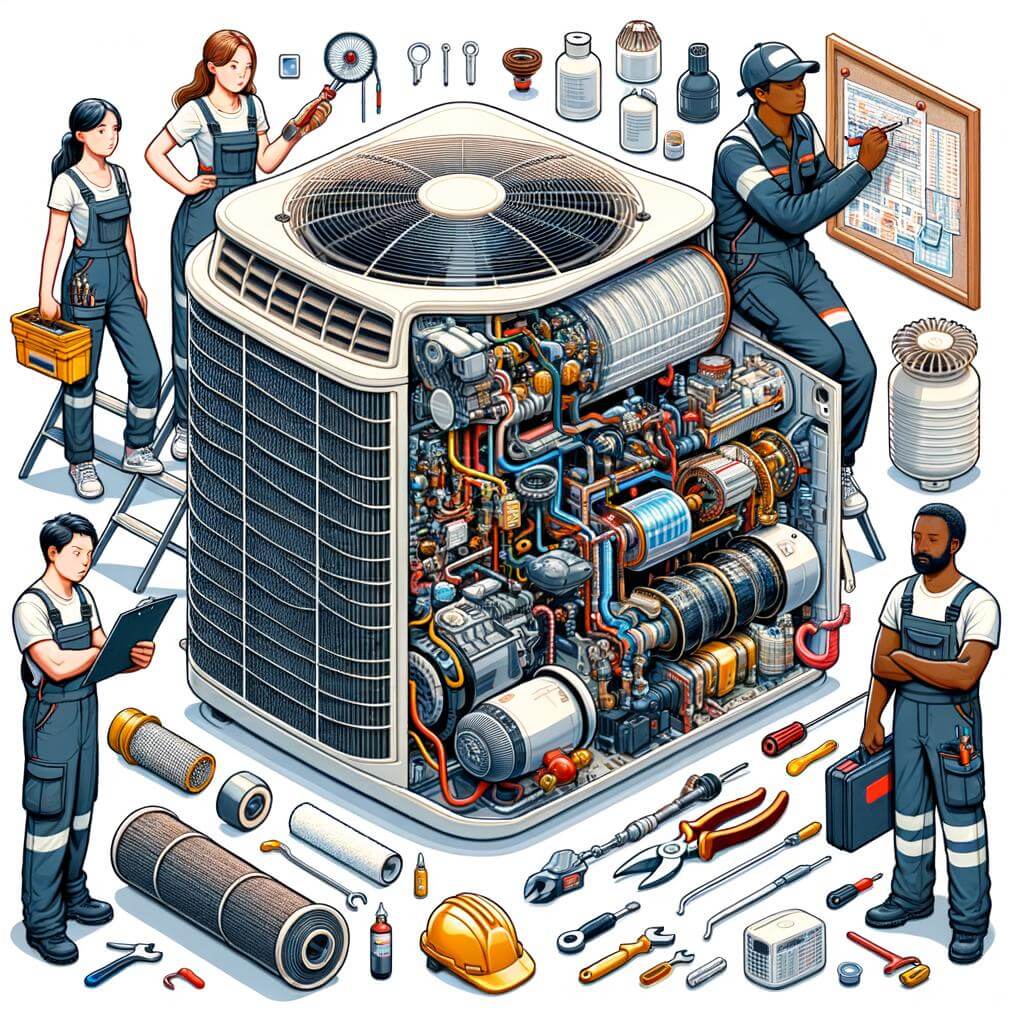
Identifying the Common Causes of an Underperforming Air Conditioner
The inability to cool is a common but easily correctable issue faced by many air conditioners. One typical reason for this problem could be clogged or dirty filters. The duty of the air filter is collecting dust and other air pollutants to maintain the air quality. However, once they become clogged, the airflow is obstructed, and thus the AC’s efficiency can significantly drop. Regular cleaning or replacing of filters can rectify this issue. Another common cause could be low refrigerant levels. Refrigerants are employed in the AC system to remove heat and humidity from the air. When the levels fall below optimal because of a leak or other reasons, the cooling capability of the air conditioner gets affected.
| Common Problem | Possible Causes |
| Not Cooling | Dirtied or clogged filters, Low coolant/refrigerant levels |
Other reasons which may lead to underperformance include thermostat issues or malfunctioning, faulty condenser coils (outside unit), and damaged evaporator coils (inside unit). Moreover, blocked vents and registers may also restrain the cool air from reaching your rooms. Therefore, it would be beneficial to occasionally check your vents and registers for any blocking furniture or other objects. Finally, excessively dense vegetation or debris around the outdoor unit can obstruct its ability to expel heat, causing the AC system to work overtime without reaching the desired temperature. Regular cleaning, maintenance, and professional servicing can effectively mitigate all these issues and ensure that the AC system performs optimally.
The Predominant Issue: Your Air Conditioner is Not Cooling Properly
Having issues with your home’s air conditioner, particularly an inadequate cooling function, can lead to significant discomfort, especially during the summer months. It’s essential to understand that the main reason behind your AC unit’s poor cooling efficiency isn’t always easy to pinpoint. However, there are a few common problems that might contribute to your air conditioner’s inability to cool your home proficiently.
The first suspect is a dirty or clogged air filter. When the filter becomes obstructed with dirt, dust, and other airborne particles, it restricts the unit’s airflow. Consequently, the cooled air can’t circulate through your house as easily. Regularly cleaning or replacing your air filters can go a long way toward improving your AC’s efficiency.
Another potential issue is low refrigerant levels. The refrigerant is the liquid that your air conditioner uses to remove heat and humidity from the air. If your system has a leak or if the refrigerant is just low, the unit will not be able to cool your home appropriately.
| Symptoms | Solutions |
|---|---|
| Dirty or clogged air filter | Regularly clean or replace the filters |
| Low refrigerant levels | Refill the refrigerant or repair the leak |
Besides, inefficient thermostat settings could be another reason your home is not getting cool enough. Always make sure your thermostat is accurately set to the right temperature. It’s easy to mistakenly set it too high or to ‘heat‘ instead of ’cool.’ Lastly, regular maintenance goes a long way in preventing AC-related issues. Apart from changing filters and checking refrigerant levels, make sure other components like the compressor, evaporator coil, and fans are also in good working order.
Expert Diagnosis: Technical Issues that Lead to Inefficient Cooling
One of the most frustrating things to endure during the hot summer months is an air conditioner that’s not fulfilling its intended purpose – cooling. Often, the technical glitch that’s making your air conditioning system inefficient is the lack of adequate refrigerant. The refrigerant is the substance that your air conditioner uses to remove heat and humidity from the air in your home. If your system has developed a leak in the refrigerant lines, you’ll end up with insufficient refrigerant to cool the air effectively.
Dirty or blocked condenser coils are another common issue that can severely impact your unit’s effectiveness. Located outdoors within the AC unit, these coils get rid of the heat removed from the air by ejecting it outside the building. However, when they are covered in dirt or debris, they get insulated and struggle to dissipate the heat effectively. This makes your unit work harder, consequently resulting in reduced cooling, increased energy consumption and even system failure.
- Evaporator coil problems: Your system’s evaporator coil absorbs heat from the air, a process that can be severely affected if the coil gets dirty or damaged.
- Faulty fans: Your air conditioner has two fans – one that blows indoor air over your unit’s evaporator coil to cool the air, and another that blows air over the outdoor unit’s condenser to expel the absorbed heat outside. If either of those fans isn’t working properly — due to a faulty motor, lack of lubrication, worn belts, or too much dirt and debris- you might end up with poor airflow and air conditioner problems.
- Leaking ducts: The ductwork that runs through your walls and ceilings carries the cooled air from the air conditioner throughout your property. However, if there are holes or breaks in the ducts (which can happen over time), that expensive cooled air ends up inside your walls where it’s not doing anybody any good.
| Problem | Potential Impact |
| Lack of refrigerant | Insufficient cooling |
| Dirty condenser coils | Increased energy consumption |
| Evaporator coil problems | System struggling to absorb heat |
| Faulty fans | Poor air flow |
| Leaking ducts | Loss of cooled air |

Professional Recommendations for Repairing a Non-Cooling Air Conditioner
A common problem many homeowners face during the summer is the non-cooling air conditioner. This issue may quickly turn your comfortable haven into a sweltering nightmare. Contrary to popular belief, the air conditioner’s failure to cool your home doesn’t always mean a hefty repair cost. There are some minor issues that you can resolve yourself. The following are professional recommendations for addressing such issues:
- Thermostat settings: Ascertain that your thermostat is set to ‘cool’ and has a lower temperature than the current room temperature. Sometimes, a wrongly configured thermostat is the cause of your troubles.
- Filter change: Over time, your A/C filters can accumulate dust and debris, blocking the flow of cool air. Regularly changing these filters is essential for efficient air conditioning.
- Dirt in the condenser coils: Dirty condenser coils can’t expel heat effectively, resulting in poor cooling. Cleaning these coils can significantly improve your A/C performance.
- Insufficient coolant: If your A/C is low on coolant, it won’t cool your home effectively. Hire a technician to check your A/C’s coolant levels.
| Possible Problem | Solution |
|---|---|
| Thermostat settings | Ensure the thermostat is set to ‘cool’ and has a lower temperature than the room’s current temperature |
| Filter change | Regularly change A/C filters to prevent dust accumulation |
| Dirt in condenser coils | Clean the condenser coils to improve A/C’s ability to expel heat |
| Insufficient coolant | Hire a technician to check and refill coolant levels |
Remember, always consult with a professional if your A/C issue seems complex and tricky. Tampering with certain aspects of your A/C system might void your warranty, or worse, cause more damage. So when in doubt, call in the experts!

The Importance of Regular Maintenance for Optimum Air Conditioner Performance
Sometimes, despite your best efforts, your air conditioner might refuse to cool efficiently. This could be due to several issues, some of which are surprisingly common. First and foremost, a dirty or clogged air filter may impair airflow, preventing the system from properly cooling your home. Sometimes, the evaporator or condenser coils, which are essential in extracting heat from the air, might get dirty, affecting their efficiency. Another common problem is low refrigerant levels, which can severely hamper cooling. Moreover, problems with the thermostat or electrical issues could also be to blame for an inefficient AC.
| Issue | Solution |
|---|---|
| Dirty Filter | Clean or replace the air filter |
| Dirty Coils | Regularly service your AC to keep coils clean |
| Low Refrigerant | Call a professional to refill refrigerant |
| Thermostat Problem | Check settings or get it replaced |
| Electrical Issue | Consult a professional AC technician |
The regular maintenance of your air conditioner is vital for its optimum functioning. By simply cleaning or replacing the air filter every two months, you can significantly improve the performance of your system. Similarly, cleaning the evaporator and condenser coils once a year can drastically enhance your AC’s efficiency. If your condenser coils are situated outside, ensure that they are not blocked by foliage or debris. Keeping a regular check on your thermostat settings and promptly fixing any electrical issues would likewise contribute towards efficient cooling.
To summarize, while air conditioners can encounter a number of problems, most of these are common and easy to fix. Regular maintenance, timely interventions, and minor adjustments can go a long way in ensuring that your AC runs smoothly while keeping your home comfortably cool.
Preventive Measures to Avoid Future Air Conditioning Complications
While air conditioning units are resilient, they still require regular maintenance to perform optimally and prevent complications. Neglecting necessary upkeep can lead to its inability to cool your home during the stifling summer months. Here are a few preventive measures that will help avoid a hot and uncomfortable situation.
- Regular cleaning: Accumulation of dirt and debris within the unit can seriously impede its cooling performance. It’s crucial to clean the filters, coils, and fins regularly. Also, ensure that the area around the cooling system is clear of obstructions.
- Monitor refrigerant levels: If the AC is low on refrigerant, it may not cool effectively. Regular checks on the refrigerant levels can prevent this issue.
- Annual inspections: Schedule annual inspections with a professional. They can identify and fix potential problems before your AC breaks down.
| Preventive Action | Benefits |
|---|---|
| Daily filter check | Clean AIR_FLOW, efficient cooling |
| Bi-annual professional service | Longer AC lifespan, cost-efficiency |
| Monthly coil cleaning | Improved system PERFORMANCE |
Also, consider adopting energy-saving habits such as using blinds or drapes to block the sun during peak hours, and refraining from lowering your thermostat to cool your home faster – it doesn’t work and only puts unnecessary strain on your system. Finally, consider investing in a smart thermostat for efficient cooling.
Prevention always beats cure, especially when the cure might leave you sweltering in the middle of a heatwave. An adequately maintained air conditioning unit can mean the difference between a comfortably cool summer and a miserably warm one.
The Conclusion
In summary, the most common issue that your home air conditioner could be experiencing if it’s not cooling properly is typically related to refrigerant leaks, clogged filters, or a malfunctioning compressor. All of these vital components directly impact its ability to cool your home comfort zone efficiently. It’s always best to get any potential issue resolved early before it turns into a larger, more expensive problem. Don’t hesitate to call a trained professional to handle these issues safely and effectively, as unauthorized tampering could result in further damage or void your warranty. Remember, regular preventative maintenance can fend off many potential issues and extend the lifespan of your air conditioner. Knowledge is power, so keep yourself informed to ensure a comfortably cool environment. These problematic scenarios may seem daunting, but with your now-enhanced understanding of home air conditioning, they don’t have to be. Stay cool and carry on!

